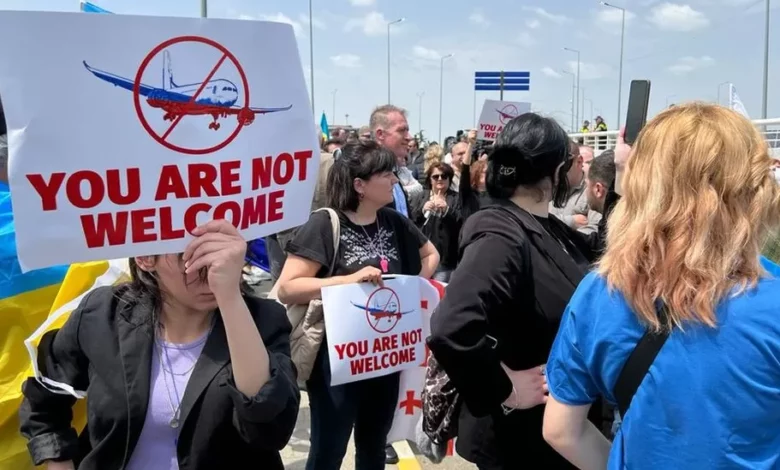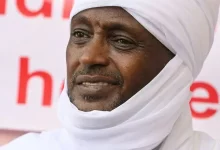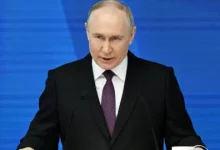
Protesters held banners saying “you are not welcome” at Tbilisi airport in Georgia, as the first direct flight for almost four years arrived from Russia.
Scuffles broke out as police barred them from standing outside the airport arrivals hall.
The Azimuth Airlines plane arrived at 13:20 local time (09:20 BST), days after getting the green light from Georgia’s Civil Aviation Authority.
Georgia’s government has welcomed the return of direct flights from Russia.
“The beneficiaries are our citizens who have to take a detour at triple the cost,” said Irakli Kobakhidze, the Chairman of the governing Georgian Dream Party.
The government argues a million ethnic Georgian citizens living in Russia stand to benefit, although Russian figures suggest the number is closer to 114,000.
But most Georgians oppose the government’s move to allow flights and more than 100 Georgian organisations says it is a “direct sabotage” of their country’s aspirations to join the European Union (EU). Georgia is hoping for Brussels to approve its bid to become a candidate later this year.
On board the first flight was a delegation of pro-Russian Georgian Nongovernmental Organisations (NGOs) and businesses, according to Russia’s state news agency. Georgian Airways is also planning daily flights to Moscow.
The apparent thaw in relations comes after President Vladimir Putin signed a decree ending Moscow’s unilateral ban on direct flights imposed in response to mass anti-Russia protests in Tbilisi in 2019.
Russia has also lifted 20-year-old entry restrictions on Georgian citizens, allowing them to visit for up to 90 days without a visa.
And yet the two countries do not have diplomatic relations. Russia and Georgia fought a war in 2008 and 20 per cent of Georgia’s internationally recognised territory remains under Russian occupation.
Georgia’s pro-European President, Salome Zurabishvili, denounced “another Russian provocation”. And both the EU and the US have expressed disappointment at the latest developments.
US Ambassador to Georgia, Kelly Degnan, questioned the decision to accept “a gift” from what she called an aggressor country. —BBC






